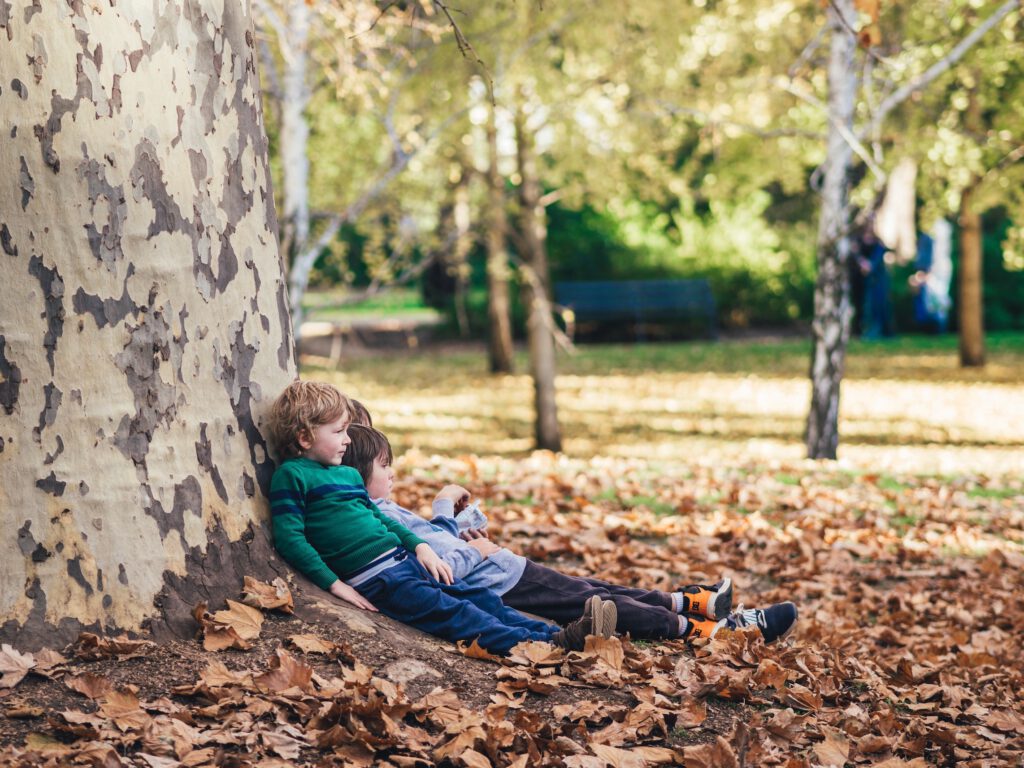How Does Nature Impact Students’ Well-Being?

How often do you see joyful children playing outside with their peers, swept up in the excitement and jubilantly singing alongside the chirping birds? Unfortunately, that seems to be a less common scene these days. The never-ending games of hide and seek have been replaced by multi-player sessions of Animal Crossing.
Console games provide a variety of mind-stimulating opportunities. But they fail to address the overall well-being of developing children. Thankfully, time spent in nature can counteract the effects of technology and closed-up spaces and make a positive impact on children’s wellness.
Today, parents want to create a healthy outlet for their children, and nature seems to tick all the boxes. From improvements in mental focus to reductions in aggression and stress, nature might well be the next ‘quick fix’ but with a guaranteed long-term positive effect.
Let’s explore the range of benefits that come along with nature activities for children.
Intellectual benefits
Think of nature as a real-life encyclopaedia. It provides children with an interactive learning experience through stimulating all five senses. It’s the perfect accompaniment to indoor lessons, offering an immersive experience of their new knowledge.
Outdoor sessions are a swift way of piquing children’s curiosity and thirst for knowledge while elevating their well-being. Time in nature is proven to develop problem-solving and critical thinking skills. This is because it stimulates children to enquire about their surroundings. In return, kids are likely to experience a boost in confidence and a desire to continue developing outside of the classroom.
A recent study by the Institute of Education at University College London (UCL), commissioned by The Wildlife Trusts, evaluates the impact of nature on children. Through a range of outdoor activities performed by over 450 primary school children, such as identifying plants and trees, they observed an increase in the children’s well-being both in the short and long-term.
The children also gained intellectual benefits which span across their wider personal and social abilities:
? 90% of children felt they learned something new about the natural world.
? 79% felt that their experience could help their school work.
? After their activities, 84% of children felt that they were capable of doing new things.
? 79% of children reported feeling more confident in themselves.
Emotional benefits
The fact that nature on its own can reduce ADHD and anxiety symptoms speaks greatly about its immense ability to improve mental health and emotional well-being in children.
A recent study compared the aftereffects of 49 activities conducted in green outdoor settings versus those in indoor setting on children’s ADHD symptoms. It was concluded that green outdoor activities reduced symptoms significantly more than those conducted in other environments. This is true even when activities were matched across settings.
The emotional benefits of outdoor activities affect children of all ages and mental states. The change of scenery that nature provides offers a break in the usual routine, as well as a calmer state of mind. This can be a great learning stimulant and can also open a child’s mind to new perspectives on their lessons.
Social benefits
Outdoor activities are a great way for children to interact with their peers outside of the classroom and learn new social skills. Play dates for both younger and older children give them the chance to collaborate, use their imagination, and have fun with their friends.
A group environment teaches children valuable social skills, which include active listening, sharing, creating and following rules, and showing empathy towards a group member who is sad or hurt.
79% of the kids who participated in The Wildlife Trusts study reported better relationships with their classmates after engaging in group outdoor activities.
Physical benefits
As we already mentioned, the health benefits of spending time in nature are immense. When combined with group or individual activities, children have the chance to effortlessly build stronger muscles and bones and exert energy. This results in an overall improvement in health.
We all know that things can get quite messy, especially when children are still little and excited about their surroundings, no matter the weather. That’s why stocking up on essentials for all weather conditions, including wellies, a baby puddle suit, hats, gloves, and winter coats, is a must.
Let’s not neglect the advantages of natural sunlight, which increases a child’s amount of vitamin D and boosts their immune system. Fresh air and an appreciation of the natural world are also massive bonuses.
We tend to take nature for granted, so we often fail to realise its many benefits on our well-being. With children still developing, it’s crucial to make efforts to promote outdoor activities. Then, we can watch the children of tomorrow flourish in wellness.











Responses